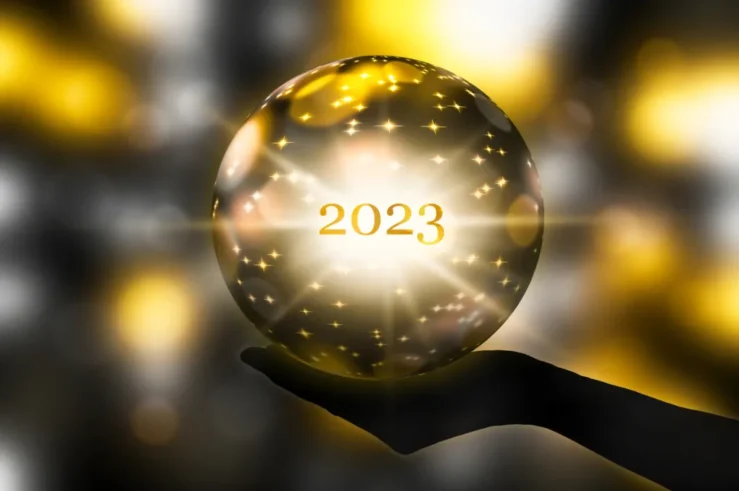What Is a Barrier to Entry?
Why do monopolies exist? Many textbooks point to barriers to entry as a cause of monopolies. Tyler Cowen and Alex Tabarrok’s textbook says: “In addition to patents, government regulation and economies of scale, monopolies may be created whenever there is a significant barrier to entry, something that raises the cost to new firms of entering the industry.” ... What Is a Barrier to Entry?
The CJEU’s Decision in Meta’s Competition Case: Sensitive Data and Privacy Enforcement by Competition Authorities (Part 2)
Yesterday, I delved into the recent judgment in the Meta case (Case C-252/21) from the Court of Justice of the European Union (CJEU). I gave a preliminary analysis of the court’s view on some of the complexities surrounding the processing of personal data for personalized advertising under the GDPR, focusing on three lawful bases for ... The CJEU’s Decision in Meta’s Competition Case: Sensitive Data and Privacy Enforcement by Competition Authorities (Part 2)
Enforcing the DMA is Easier Said Than Done: Evidence From the Commission’s Draft Template for DMA Compliance Reports
The European Commission early last month published its draft template for DMA-compliance reports. This is the document that gatekeepers will periodically need to fill out, and which subsequently will be used to determine whether they comply with the European Union’s Digital Markets Act (DMA). The draft template is a missed opportunity to clarify some of ... Enforcing the DMA is Easier Said Than Done: Evidence From the Commission’s Draft Template for DMA Compliance Reports
The CJEU’s Decision in Meta’s Competition Case: Consequences for Personalized Advertising Under the GDPR (Part 1)
Today’s judgment from the Court of Justice of the European Union (CJEU) in Meta’s case (Case C-252/21) offers new insights into the complexities surrounding personalized advertising under the EU General Data Protection Regulation (GDPR). In the decision, in which the CJEU gave the green light to an attempt by the German competition authority (FCO) to ... The CJEU’s Decision in Meta’s Competition Case: Consequences for Personalized Advertising Under the GDPR (Part 1)
The FTC Shouldn’t Try to Make Amazon Divest Its Logistics Service
Bloomberg reports that the Federal Trade Commission (FTC) plans a suit against Amazon to force the divestiture of the company’s logistics service. The suit, if correctly described, would try and do through litigation what could not be achieved through legislation, when Congress did not enact the American Innovation and Choice Online Act (AICOA). A successful ... The FTC Shouldn’t Try to Make Amazon Divest Its Logistics Service
The Paradoxical Perils of Mandatory ‘Competition’ in Merchant Routing of Credit-Card Transactions
Sen. Richard Durbin (D-Ill.) earlier this month introduced legislation that aims to manufacture competition in the routing of credit-card transactions. If enacted, the measure would require that merchants be able to choose from at least two networks when processing most credit-card transactions. While this would result in competition over routing, it would harm other forms ... The Paradoxical Perils of Mandatory ‘Competition’ in Merchant Routing of Credit-Card Transactions
How the Facebook Claim’s Intellectual Foundations Doomed Its Argument
The UK Competition Appeal Tribunal (CAT) recently handed down a judgment refusing to allow “the Facebook Claim”—among the more well-known UK competition-law class-action cases—to proceed to trial. While the case failed to receive the necessary certification, it may yet fight another day, provided that it undergoes, as the CAT put it, a “root and branch ... How the Facebook Claim’s Intellectual Foundations Doomed Its Argument
NLRB Targeting of Noncompetes Lacks a Sound Legal Foundation
Jennifer Abruzzo, general counsel of the National Labor Relations Board (NLRB), recently issued a memo claiming that certain noncompete clauses in labor contracts are illegal, on grounds that they violate employees’ right to organize and negotiate better working conditions under Section 7 of the National Labor Relations Act (NLRA). The NLRB isn’t the first Biden ... NLRB Targeting of Noncompetes Lacks a Sound Legal Foundation
Oregon Should Beware the Right to Repair
The Oregon State Legislature is considering HB 3631, a bill that would ensure that consumers have a “right to repair” their electronics devices. The legislation would require that manufacturers provide consumers and independent repair shops access to relevant repair information, as well to make available any parts or tools necessary to carry out the repair. ... Oregon Should Beware the Right to Repair
FTC v Amgen: The Economics of Bundled Discounts, Part Two
The Federal Trade Commission (FTC) recently announced that it would sue to block Amgen’s proposed $27.8 billion acquisition of Horizon Therapeutics. The challenge represents a landmark in the history of pharmaceutical-industry antitrust enforcement, as the industry has largely been given license to engage in permissive mergers and acquisitions of smaller companies without challenge. In Part One, ... FTC v Amgen: The Economics of Bundled Discounts, Part Two
Antitrust Regulators Should Be Careful Not to Shank the PGA-LIV Deal
In a world in which so-called “Big Tech” has dominated antitrust discussions for a decade or more, who would’ve guessed that golf would grab the biggest headlines? The proposed merger of the PGA Tour and LIV Golf has some major headline-grabbing potential: sports, big money, big names, 9/11, human-rights abuses, and cringeworthy public-relations attempts. Aside ... Antitrust Regulators Should Be Careful Not to Shank the PGA-LIV Deal
Dynamic Competition Proves There Is No Captive Audience: 10 Years, 10G, and YouTube TV
In Susan Crawford’s 2013 book “Captive Audience: The Telecom Industry and Monopoly Power in the New Gilded Age,” the Harvard Law School professor argued that the U.S. telecommunications industry had become dominated by a few powerful companies, leading to limited competition and negative consequences for consumers, especially for broadband internet. Crawford’s ire was focused particularly ... Dynamic Competition Proves There Is No Captive Audience: 10 Years, 10G, and YouTube TV







